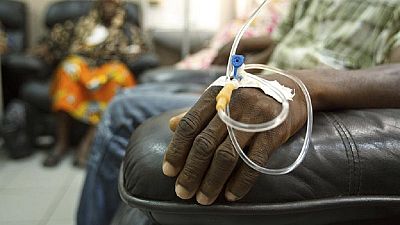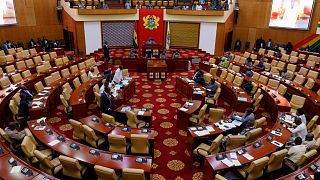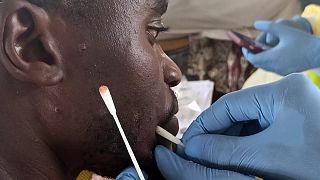Ghana
The Korle Bu Teaching hospital (KBTH), Ghana’s biggest medical facility is suffering from a lack of beds at its Surgical Medical Emergency (SME) unit.
The situation has forced the hospital to suspend referrals from other health facilities as it strives to decongest the 36-bed unit which as at Tuesday had 60 patients.
Some of those who could not have beds to be treated on, were being given attention in plastic chairs, wheel chairs and on the ground, social media photos revealed.
Explaining the situation to a local radio outlet, the hospital’s Public Relations officer, Mustapha Salifu said KBTH was in the process of decongesting the unit but was ready to give telephone assistance to other facilities and also to accept dire cases that could not be treated elsewhere.
“You know, this is a 36-bed facility unit but as at yesterday, the patients that we had were in excess of 60. So, which means that we have literally doubled the number of patients that we should have at the SME. So that was why we had patients on chairs and some of them were even outside,” Mr Salifu said in an interview on Joy FM.
“This morning there was one patient but fortunately the person has been moved in because space was created for him to move. At the moment, we are linking up with other hospitals to inform them not to refer, they can do telephonic consultations, we’ll give them guide on how to deal with those cases except the dire emergencies that they will still speak to us and we will take them.
“We are in the process (of informing them), usually we would want to do this for 48 hours to allow the place to decongest so that we can start receiving but for the dire emergencies that cannot receive help anywhere except here, they can still fall through but they have a way of contacting the emergency so that we deal with that”.
Ghana’s healthcare system is beset with challenges along the delivery chain. Aside the lack of beds, local media have highlighted abandoned health facilities, lack of medicines and systemic corruption.
The issue of brain drain of medical professionals is another recurring subject as doctors and others in the health fraternity have left the shores of the country to practice elsewhere. Despite a government health insurance, medical costs are relatively high.














00:50
Ons Jabeur retires from Wimbledon Opener due to breathing issues
11:15
AI drones lead breakthrough against malaria in Africa [Business Africa]
01:29
Experts warn of danger of exercising in extreme heat and humidity
Go to video
Evacuations begin: African citizens caught in Israel-Iran crossfire
Go to video
Ghana's former finance minister place on Interpol Red Notice list over corruption allegations
01:02
As cholera cases surge, African leaders urge local production of vaccine